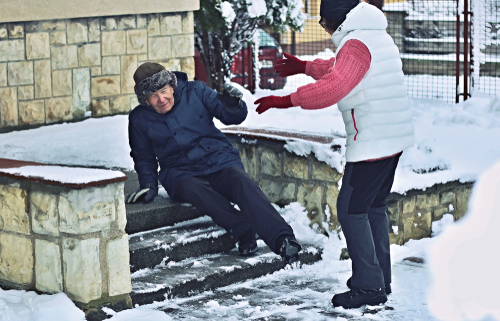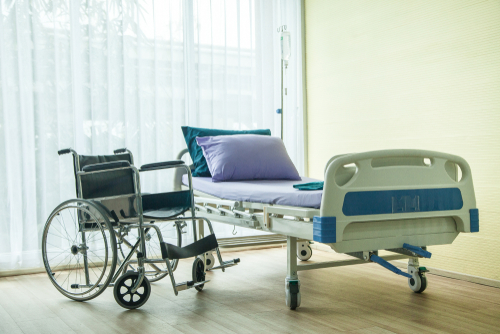Home health care service is usually begun after an acute injury or illness. For example, your senior falls on the ice while retrieving their mail, and they are injured. Your senior is transferred to the hospital as an emergency, and it is determined that they have fractured their hip. Obviously, this is an emergency and requires surgery. Three days later, your senior is stable, the fracture has been surgically repaired, and the doctor says your senior is ready to return home.
Is your senior back to normal function? Of course not. It will take weeks of therapy and care before they are. This is when at-home health care can be the solution. Medicare can help with the cost of this care as well as provide the equipment they may need during recovery. Medicare will not pay for long term care needed for people diagnosed with things like Alzheimer’s or cancer. However, it does cover hospice care.

When your senior no longer requires the acute care of the hospital, the doctor will write discharge papers that include the plan of care. It will state that your senior is in need of at-home skilled care and that they are home bound. It will indicate what type of therapy they will need, as well as their need for special equipment. This is the document that Medicare and the skilled care agency will need, in order to provide service.
The skilled care agency you use must be Medicare approved. The hospital discharge coordinator will help you to arrange that everything and everyone is in place within three days from the event to discharge. This timing is a surprise to most families. It is the same for everyone, whether the senior was an active 70-year-old at the time of the accident or a frail 90-year-old.
Criteria for Home Health Care
- Your senior must be designated Homebound according to the Centers for Medicare and Medicaid criteria. This means they are unable to leave their home, except for short intermittent times such as for medical tests, doctor visits, and therapy. They are also allowed to leave the home for short, infrequent non-medical reasons, such as attending church.
- Your senior requires skilled care on an intermittent or part-time basis in order to improve, maintain, prevent, or further slow their medical condition.
- They must be under the care of a doctor who documents an in-person visit with your senior within three months prior to, or one month after the start of home health care service.
- Your senior will receive their home health care from a Medicare-approved home health care agency.
The documents that are needed will be included in the discharge paperwork and the plan of care which is written by the physician.
Cost
If your senior is enrolled in the Original Medicare Plan, there is no charge for home health care service. However, you may be responsible for up to 20% of the cost for durable medical equipment. If your senior is on a Medicare Advantage plan, the costs and benefits vary. Check your senior’s plan to find out what is covered and what is your financial responsibility.

Services Medicare Includes in Home Health Care
Medicare provides skilled nursing care and rehabilitation as part of in-home care. Medicare In-Home Health Care therapy includes Physical Therapy, Occupational Therapy, Speech Therapy, and medical social services. Medicare will also provide durable medical equipment and medical supplies. Remember: Medicare will not cover assistance with activities of daily living except as included in the physician-ordered care plan.

Role of Medicaid
Medicaid might be helpful with programs to provide in-home care tasks such as cooking meals, light housekeeping, assistance with dressing, and bathing. Each Medicaid program varies by state, but some states do have programs to help seniors stay in their homes.
When choosing a home health care agency, make sure they are Medicare-certified. Discuss exactly what service they will provide and the cost. Home health agencies must notify you of the cost of services in writing before starting care.
Unfortunately, the need for in home health care is often the result of an emergency situation. But, if you take it step by step and rely on the help of the experts, the transition from hospital care to at-home health care will be as stress-free as possible and set your senior on the path to a full recovery.

